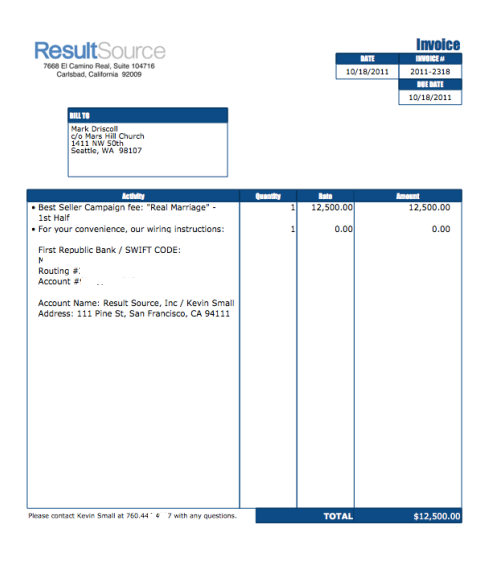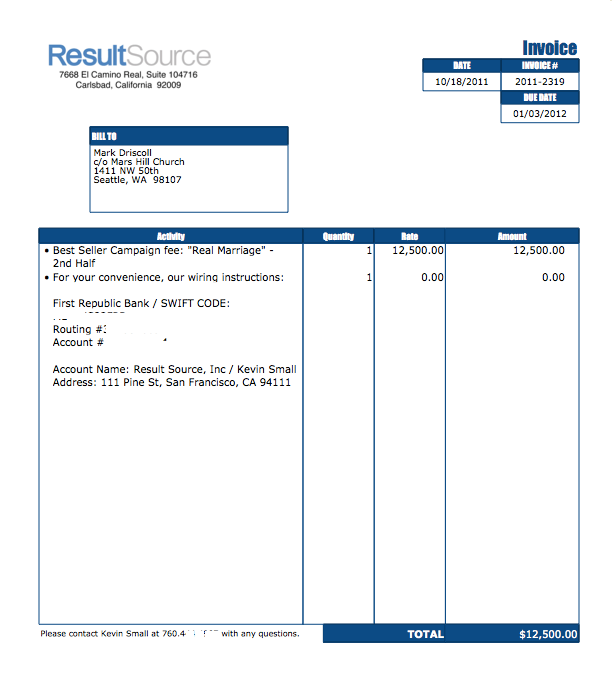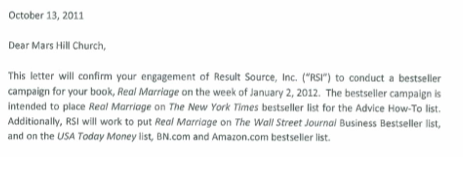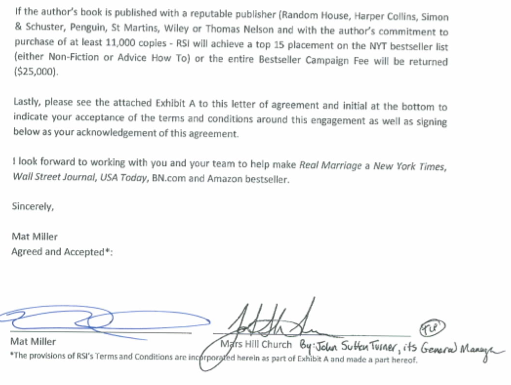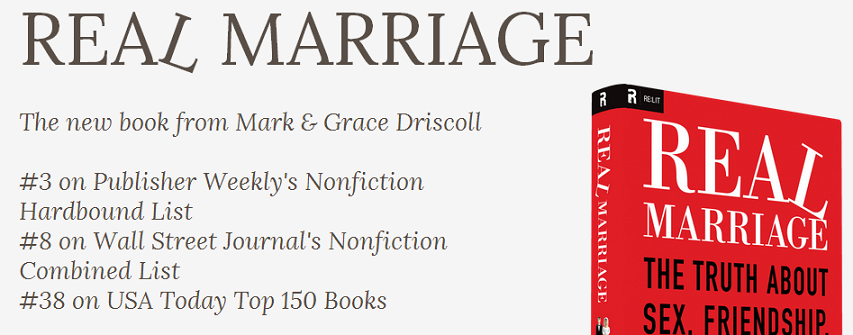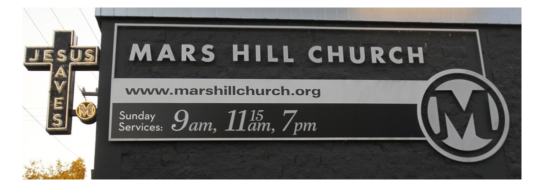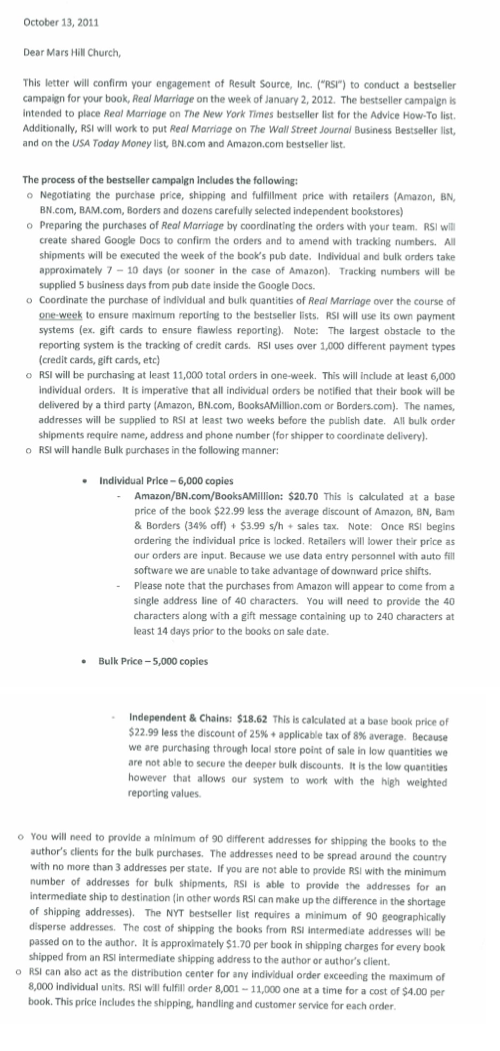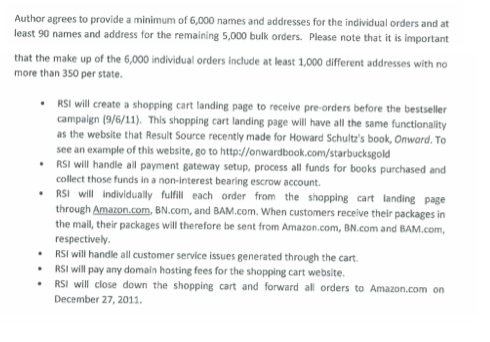Before Warren Smith’s World Magazine article in March, the story about Mars Hill Church paying a consulting firm to boost Mark and Grace Driscoll’s book Real Marriage to the top of the New York Times best seller list was a carefully guarded secret at the Seattle megachurch. Almost three months later, members of the church are still asking their pastors about the deal. Last week, in a meeting of Mars Hill group leaders, members asked pastors Thomas Hurst and Jason Skelton to name who was responsible for the decision to spend church money on the promotion of the Driscolls’ book. According to sources in the meeting, Hurst and Skelton told those present that Driscoll said he was not involved because he had removed himself from the decision. Hurst added that Sutton Turner, who signed the contract (read it here), was new on the job and simply signed papers put in front of him. However, according to the sources, no person was singled out as being responsible for the RSI agreement.
This narrative raises questions about who at the church authorized the RSI contract. Turner’s name is on the contract, and the invoices (see below) were addressed to Driscoll. However, if Driscoll and Turner aren’t responsible, that leaves Jamie Munson and/or Dave Bruskas, who were the other two executive elders at the time.
Relevant to the Mars Hill members’ questions, I have obtained invoices dated five days after the RSI contract was signed. The invoices were sent to Mark Driscoll from RSI requesting payment of RSI’s $25,000 fee. While it is not clear who actually saw or paid these two invoices, they raise questions about the narrative presented in the recent group leader’s meeting and Driscoll’s involvement in the arrangement.
When the RSI-MHC story broke, Mars Hill and Mark Driscoll floated three different statements about the use of RSI to get Driscoll’s book on the New York Times list. As noted in a previous post, the initial position of Mars Hill Church was that the partnership between RSI and Mars Hill was an “opportunity” and an “investment.” Two days later, the Board of Advisors and Accountability of MHC said the arrangement was “common” but “unwise.” Then, several days later, Mark Driscoll said he first saw the arrangement as a way to market books but had come to see it as “manipulating a book sales reporting system” and thus “wrong.” In that statement, Driscoll seemed to indicate that he was aware of the situation.
I asked Mars Hill Church who was responsible for the Result Source agreement and church spokesman Justin Dean replied:
We have received your requests, and will not be responding with any comments now or in the future.
Adding another wrinkle is a note from executive pastor Sutton Turner in response to a member who recently left the church. In response to member concern over the Result Source arrangement, Turner wrote:
As I thought and prayed about your letter this morning, please know that we realize the Results Source decision was a wrong decision and poor stewardship. I am sorry as your Pastor that I failed you. Please accept my apology, I am very sorry.
I pray that I have learned from this and the godly authority that I am under has helped me and will help me in the future.
Please forgive me for my poor stewardship, I take that very seriously as a King.
God Bless you and I wish you all the very best.
Grace and Peace to you,
Sutton Turner
Executive Elder & Executive Pastor
So who is responsible for this expenditure of church funds? The invoices raise the possibility that Driscoll paid RSI’s fee while the church put up the money for the rest of the operation. Sutton Turner claims responsibility but others provide an out for him by saying he just signed the papers. An earlier church statement says Result Source was suggested by outside counsel. As of now, the situation is not clear and the church refuses to provide an official response.
In any case, this topic continues to be of interest to Mars Hill members and I suspect they will keep raising the matter. However, doing so may lead to negative consequences. Recently, one volunteer leader was removed from his position as a coach because he questioned leaders about this issue and executive salaries. More on that story to come.
Read the contract between Mars Hill Church and Result Source, Inc to promote Real Marriage.
